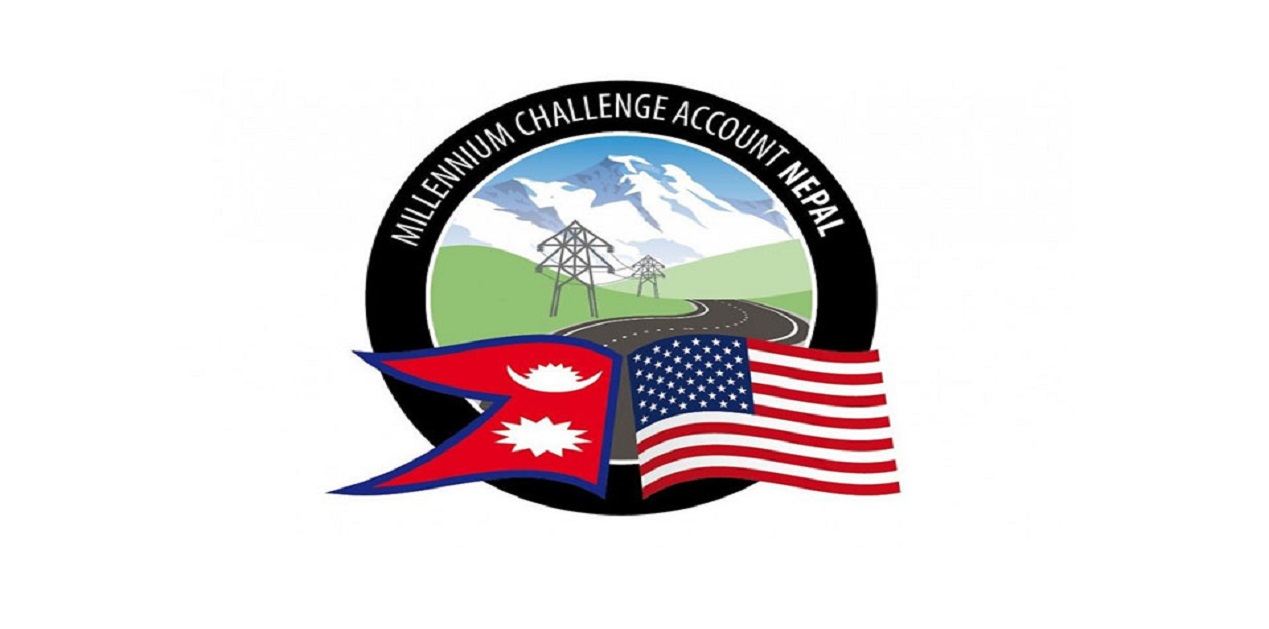Introduction
Nepal-America's five-year MCC project seems to be stuck for various reasons, and it is possible that if progress continues at this pace, this five-year project will not be completed. Notably, Millennium Challenge Account Nepal (MCA-Nepal) issued a release in November 2022 for the financial year 2022-23, seeking applications from companies to construct a 315 km of a double-circuit 400 kV transmission line. However, the entire tender process was cancelled due to companies bidding more than the estimated cost. According to the MCA-Nepal survey, this transmission line's estimated cost was $220 million. The bidding process was started accordingly, but after receiving the lowest bid of $365 million, which was 66% more than the estimated cost, MCA-Nepal, the one-year-long process was put to an end on October 13, 2023, by issuing a notice.
What is MCC?
The Millennium Challenge Corporation (MCC) is a United States foreign aid agency established by the US Congress in 2004. It is an independent agency separate from the State Department Whose work is to provide financial help in infrastructure development in least developed countries (LCD) and developing countries. Under MCC Compacts, America provided financial assistance of 9,582.3 million dollars to 28 countries between 2004 to 2022. Only Sri Lanka and Nepal were selected for MCC grants in South Asia. The USA will provide a grant of 500 million dollars to Nepal under the MCC Compact. In respect of this, Nepal signed the agreement in September 2017. Nepal has also contributed $197 million to the MCC fund, totalling $697 million. It is essential to understand here that the grant will continue only for five years, and it is the responsibility of Nepal to utilise the grant amount by completing the project in five years. MCA-Nepal officials said that the MCC wouldn’t invest a single penny in Nepal once the project’s five-year deadline is over.
China and the Controversy
MCC's track record in South Asia has not been very good. First, the MCC agreement was signed by the government of KP Sharma Oli in the year 2017, and according to reports, the US had put immense pressure on the Nepal government to accept the MCC and warned of consequences if it did not take positive steps in this regard. On the other hand, KP Sharma Oli, considered very close to China, was accused of not taking any steps to get the MCC agreement passed by the Nepali Parliament due to pressure from China. A similar allegation was levelled against Sri Lanka, which was selected under the MCC compact in 2016, but allegedly, due to pressure from China, the Rajapaksa government had thrown out MCC from Sri Lanka's priority list, and in response to that MCC ended the grant of $ 480 million in December 2020. However, due to the tireless efforts and political mobilization of the next government of Nepal, the Nepalese Parliament approved the MCC Agreement on 27 February 2022, just one day before the approval deadline of the MCC Agreement.
Indeed, efficient diplomacy was demonstrated here by the Nepalese government. Nepal's joining of the MCC, signalled that it is not inclined towards any camp and expected friendly relations with all parties. Earlier, Nepal had joined China's ambitious One Belt One Road initiative in the year 2017 under which work on many projects is progressing in Nepal. However, China made many efforts to keep Nepal away from MCC. China's state media described the MCC with terms such as "attacking peace and development in South Asia", and "a poisonous agreement". China believes the US uses ‘’coercive diplomacy’’ through the MCC. The aim is to harm China's One Belt One Road projects in South Asia and to counterbalance China in South Asia, mainly by fuelling the Tibetan movement in Nepal.
Apart from Chinese pressure on the Nepalese government, some agreement provisions have remained a thorn in the side of Nepali policymakers. The first provision says that according to Section 2.7 of the MCC Agreement, Nepal will not use the MCC funds in such a way that American interests and American policy are negatively affected. Second, section 7(1) states that the decree or law of any country cannot overlap or bypass the rules of the MCC. Third, according to Section 3.8, only an independent organization can audit any amount spent or project under the MCC and this organization must be a USA-certified public entity.
A statement by Deputy Assistant Secretary for South Asia at the US Department of State David J. Ranz added fuel to the fire created by all these provisions. David J. Ranz, who arrived in May 2019 on his official visit to Nepal, said that MCC is a valuable part of the US Indo-Pacific strategy. With this statement, not only Nepali policymakers but also China was also upset to a great extent. A 12-point interpretative declaration was passed in the Nepalese Parliament just one day before the MCC Ratification to stop all this. The main points were that Nepal will not be a part of the Indo-Pacific policy in any way; the Nepali Constitution and laws will be supreme, and no external rule can interfere or violate it; and finally, the auditing of MCC and the projects being built under it will be done by the Nepali Comptroller and Auditor General.
Triangular Partnership
The MCC project contributed to the development of Nepali infrastructure and gave birth to a new triangular partnership in South Asia. The development of a 315 km of a double-circuit 400 kV transmission line in Nepal will connect Nepal with India through a transboundary electricity grid. Nepal can easily export electricity to India through real-time market (RTM) to the Indian market. Nepal will also be able to import electricity from India. With electricity trade, Nepal will be able to balance its trade deficit with India, and in future, the three countries can work together on new hydro-electricity projects.
On the other hand, a 300 kilometres long East-West Highway which will connect Mechi, Koshi, Sagarmatha, Tribhuvan Rajpath, will help improve internal traffic in Nepal and further strengthen the Nepal-India trade and BBIN Initiative.
Definitely, China's influence in South Asia has increased rapidly in recent times. To balance this, India was till now working alone. However India and the US will be more effective in curbing China's growing influence through a joint approach and primarily the MCC in Nepal.
Conclusion
The MCC project is a milestone in the development of infrastructure in Nepal, and this will not only ensure ease of doing business, but Nepal can now ensure a new customer for itself by selling electricity to India. It was challenging to bring all political parties to the same table to agree on the project and to build diplomatic consensus with China on this issue at the international level. However, Nepal has shown mature diplomacy here, which suits the equations of South Asia. Nepal needs to ensure that the MCC grant does not become a victim of corruption or red tape. MCA-Nepal has been working continuously since the approval by Parliament, but till now, the tender process is incomplete. The Nepali government has about three years left, and the project's work is yet to start. If the situation continues, it would not be an exaggeration to say that Nepal will lose a valuable amount and many associated opportunities.
(The paper is the author’s individual scholastic articulation. The author certifies that the article/paper is original in content, unpublished and it has not been submitted for publication/web upload elsewhere, and that the facts and figures quoted are duly referenced, as needed, and are believed to be correct). (The paper does not necessarily represent the organisational stance... More >>
Image Source: https://myrepublica.nagariknetwork.com/uploads/media/MCC_20230830104916.jpg











Post new comment